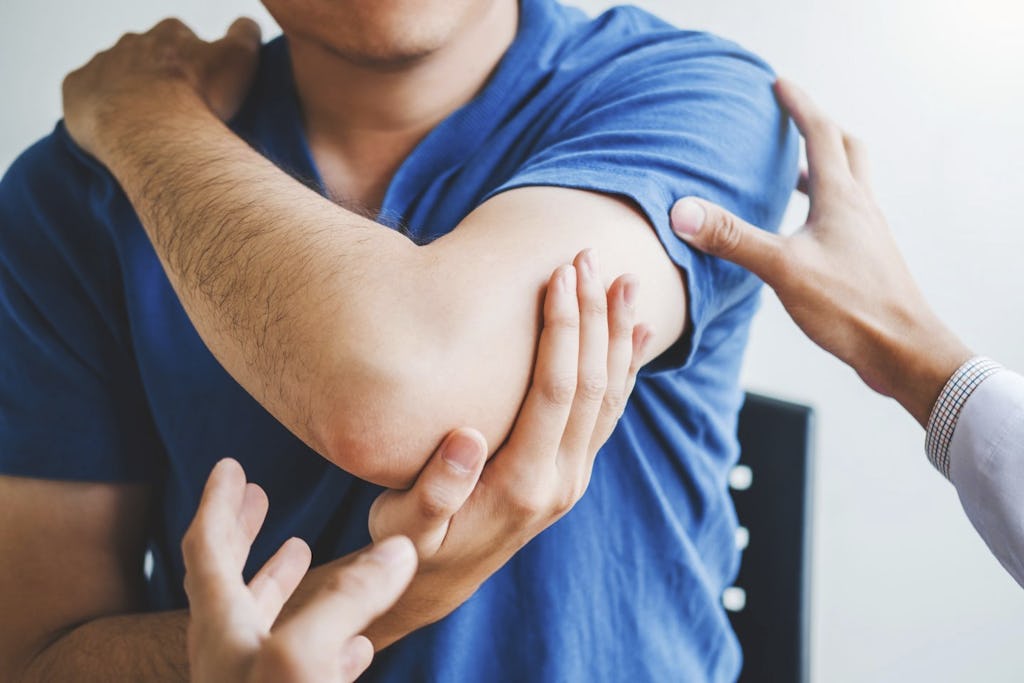The Secret to Making Your Elbow and Wrist Pain Disappear
You use your elbows and wrists constantly throughout the day - but nothing will make you realize just how much you use them like feeling the aches and pains within them. Just imagine your typical morning: you get out of bed, brush your teeth, shower, get dressed, make breakfast, and begin your commute to work. At this point, you’ve already used your elbows and wrists hundreds of times - and you’re still at the beginning of your day!
Whether you’re experiencing pain due to an injury, ailment, or some other underlying condition, it can greatly impact your quality of life. Fortunately, you can find relief or even experience a full recovery by working with a licensed physical therapist.
Elbow, wrist, and hand pain - Symptoms
Short-term pain in the elbow or wrist typically results from an injury, but long-term chronic pain may indicate illness or other underlying factors. You may consider your pain level to be between mild and severe, and it may also be intermittent, meaning it comes and goes at different points throughout the day.
Other symptoms accompanying the pain may include numbness or tingling in the extremities, especially in the fingers. This can make it difficult for you to physically perform in a range that is normal for you, creating issues with work or completing everyday tasks, depending on the seriousness of your condition.
Where does your elbow and wrist pain come from?
Listed below are a few of the most common conditions that may be the culprit for the pain you are feeling:
- Arthritis: Arthritis is a very common condition that affects approximately 53 million Americans. In fact, according to the Arthritis Foundation, it is the most common form of disability in the United States. There are many different forms of arthritis, but it is typically caused by repetitive motions or an injury that impacts the cartilage in the joints of the elbow or wrist. Physical therapy helps to improve joint motion, reduce inflammation, and strengthen the surrounding supportive muscles.
- Elbow Bursitis: At the end of the elbow is a fluid-filled sac called the “bursa” that serves as a cushion to the elbow bone, or “ulna.” When that bursa is compressed due to an injury or repetitive motion, it can lead to pain and swelling. Because of this, it is common to see the condition in athletes and students.
- Tennis Elbow and Golfer’s Elbow: Tennis elbow refers to pain on the lateral or outside aspect of the elbow, whereas golfer’s elbow refers to pain on the medial or inside aspect of the elbow. Both of these injuries are a result of repetitive use injuries and can be attributed to a variety of different tasks, not just the sports they are named after. Physical therapy is the best treatment for either of these conditions, because it restores the underlying joint and soft tissue limitations, that are causing strain to the tendons, and reduces the inflammation quite rapidly.
- Carpal Tunnel Syndrome (CTS): Carpal tunnel syndrome impacts approximately 5% of all Americans, according to the American Physical Therapy Association. The main job of the carpal tunnel is to protect the median nerve on the inside of your wrist, in addition to the tendons you use to bend the fingers. However, it is possible for this tunnel to become constricted, and when it does, nerve compression can result, leading to a variety of symptoms, such as numbness and tingling to the thumb, 1st, and 2nd fingers. In addition pain to the wrist, hand as well as swelling to the hand and fingers is even possible. Carpal Tunnel Syndrome (CTS) can be caused by an injury or by repetitive job-related use, such as assembly-line work, keyboard-heavy work, or driving heavy machinery.
- Cubital Tunnel Syndrome: Cubital tunnel syndrome is another common form of nerve compression damage that can lead to elbow and wrist pain. It is caused by repetitive pressure on the ulnar nerve, which is located inside of the elbow and is known as your “funny bone.” When pressure is put on the cubital tunnel and surrounding nerves, it can cause pain, numbness, and tingling, especially to the ring and pinky fingers.
- Strains/Sprains: Strains and sprains to the elbow or wrist can also result in pain. Strains refer to muscle or tendon injuries, whereas sprains refer more to the ligaments, which connect bone to bone. These injuries typically occur from quick overstretching of the ligaments or tendons, such as a fall on an outstretched arm, or catching something heavy.
If you are experiencing any of the symptoms caused by the conditions above, or if you have persistent pain that won’t seem to go away, contact our office in Kirkland, WA as soon as possible for an appointment.
How physical therapy benefits you
Whatever the cause of your elbow or wrist pain may be, physical therapy can help you. Our advanced treatments at Washington Physical Therapy can help relieve your pain, restore your range of motion, and get you back to living your normal life. In many cases, physical therapy treatments can even help you eliminate the need for harmful painkillers or invasive surgical procedures for nerve-damaging conditions like Carpal Tunnel Syndrome.
Our physical therapists create a personalized treatment plan unique to the specific needs of your condition. This may include any combination of specialized treatments, such as hands-on manual therapy, pain and inflammation reducing modalities, and specific therapeutic exercises to restore strength and pain free motion.
Don't let elbow or wrist pain reduce your quality of life any longer! If you are looking for a Kirkland, WA physical therapist, contact our office today for an appointment and to meet with one of our dedicated team members. We will be happy to get you back to living the healthy and physically active life you deserve!


